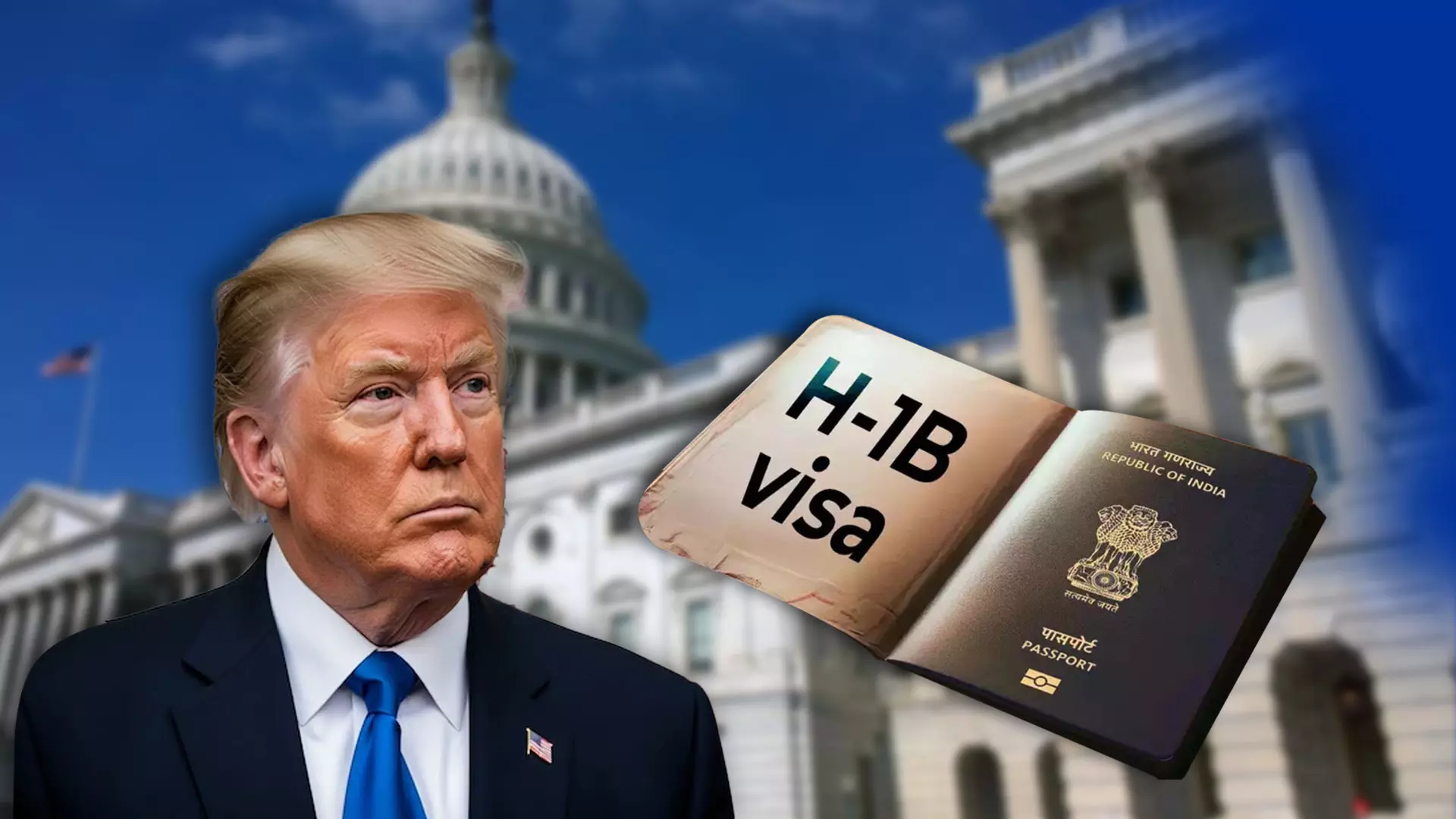
Will H1-B visa fee hike stifle innovation, spur brain drain from US?
In conversation with The Federal, a Sacramento entrepreneur warns Trump’s USD 100,000 H-1B fee risks sidelining Indian talent and eroding US innovation

The Donald Trump administration’s proposal to impose a hefty USD 100,000 fee on H-1B visas has sent shockwaves across the Indian-American community. With students, tech workers, and employers caught in uncertainty, Ganapathy Murugesh, an entrepreneur and trustee at Sacramento Tamil Mandrum, explains in a conversation with The Federal the far-reaching consequences of this move and why it could undermine America’s own growth story.
What do you think is the immediate impact of this announcement on the Indian community in the US?
The immediate impact is fear. While the proclamation mentions an implementation date of September 21, it’s still unclear whether it will stand legal scrutiny or face a court challenge. But for now, people who were about to file or extend H-1B visas are in limbo. Those outside the US with valid H-1Bs are being asked to show proof of USD 100,000 already paid by their employers before re-entering the country.
Also read: US defends H-1B visa fee hike, cites data on ‘replacement’ of Americans
For new applicants after September 21, the additional USD 100,000 fee is prohibitive. Many employers, especially smaller ones, may find it unaffordable. Even larger firms will hesitate to make such an investment in temporary foreign workers. If enforced, this will be a game-changer.
Will Indian students now think twice before choosing America for higher education?
The American dream still exists, but students will have to think carefully. It’s not just about earning a degree from a US university — it’s about what comes after. Jobs for fresh graduates are already shrinking because of layoffs, automation, and artificial intelligence (AI). Adding this hefty visa fee makes it even harder to secure employment and remain in the US.
Also read: USD 100,000 H-1B visa fee a one-time charge, only for new petitions: Trump admin
Unless students are prepared to return home and use their knowledge in India, this move may deter many from pursuing education in the US. America, which has always welcomed immigrants, is moving away from its core values. This could discourage talent that has historically contributed to its success — from Sundar Pichai to Indra Nooyi.
Do you believe this policy is counterproductive to America’s economy and values?
Absolutely. Around one in every three or four top US companies has a CEO of Indian origin. Nearly 70 per cent of all H-1B visas go to Indians, while China comes next with only 10 per cent. America’s competitiveness in technology and innovation depends heavily on Indian talent. This move undermines that.
Also read: India voices concern over Trump’s new H-1B visa restrictions
If the real aim is to stop low-wage exploitation, reforms can address that. But shutting the door on highly skilled talent, researchers, and PhD holders will only cause brain drain — from America, not to it. Without exemptions for specialised skills, the US risks losing the very ideas that drive its edge in technology.
What impact do you see on Indian IT companies and tech workers back home?
The current slowdown in Indian IT earnings is driven by automation and AI, not this visa hike. But if the fee is implemented, it could redirect some work back to India. Employers may prefer to keep the same talent in India or elsewhere rather than pay this additional cost to employ them in the US. This could boost outsourcing.
Also read: Chaos at US airports as H-1B holders disembark in panic over Trump’s fee hike
However, the biggest loss will be for America’s startup ecosystem, where many founders are immigrants on H-1Bs. Curtailing this pipeline could severely hit innovation and long-term economic growth. On the surface, the policy may look like a gain for America, but the deeper consequences are far more damaging.
The content above has been transcribed from video using a fine-tuned AI model. To ensure accuracy, quality, and editorial integrity, we employ a Human-In-The-Loop (HITL) process. While AI assists in creating the initial draft, our experienced editorial team carefully reviews, edits, and refines the content before publication. At The Federal, we combine the efficiency of AI with the expertise of human editors to deliver reliable and insightful journalism.

